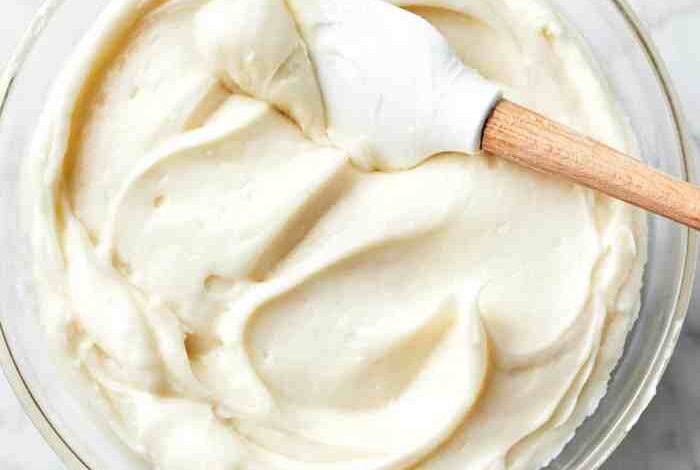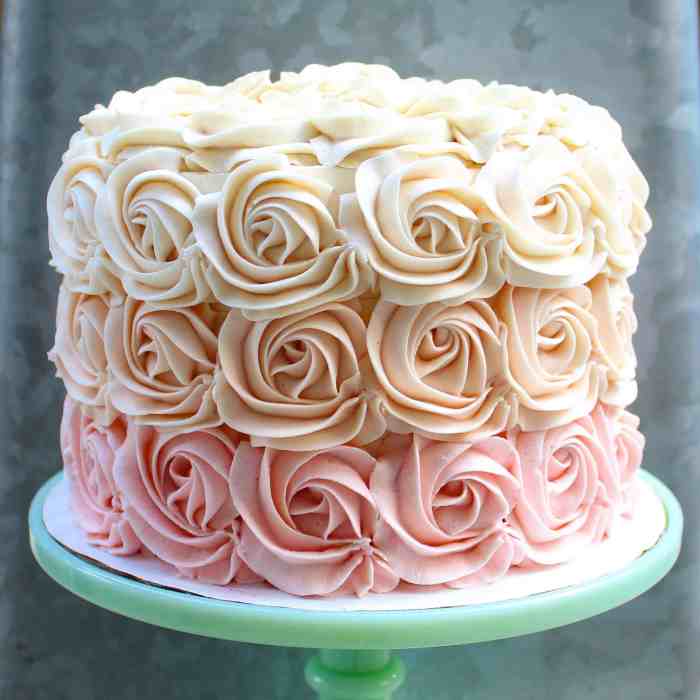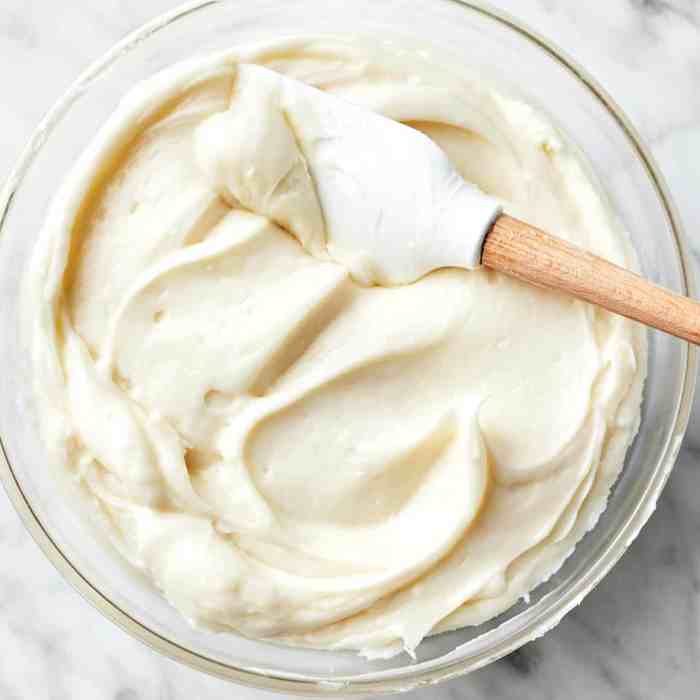
All Natural Pink Frosting: A Deliciously Colorful Twist
All natural pink frosting – it’s a delicious and vibrant way to add a touch of whimsy to your baked goods. But creating a vibrant pink hue naturally can be tricky, as it requires careful selection of ingredients and techniques.
Let’s dive into the world of natural pink frosting, exploring its unique ingredients, flavor profiles, and the surprising ways it can elevate your baking game.
From the challenges of achieving a bright pink color to the surprising flavor pairings, we’ll uncover the secrets of creating a naturally beautiful and delicious frosting. Get ready to discover the delightful world of all-natural pink frosting and its potential to transform your baking creations!
What is All-Natural Pink Frosting?
All-natural pink frosting is a delicious and visually appealing alternative to traditional frosting that relies on artificial colors. It uses natural ingredients to achieve a delicate pink hue, offering a healthier and more wholesome option for your baking creations.
Defining “All-Natural” in Frosting
The term “all-natural” in the context of frosting signifies that the ingredients used are derived from natural sources and are free from artificial colors, flavors, and preservatives. This means avoiding common culprits like red food coloring, which is often made from petroleum-based dyes.
Common Ingredients in All-Natural Pink Frosting
Natural ingredients play a crucial role in achieving a beautiful pink hue without relying on artificial dyes. Here are some common ingredients used:
- Beetroot powder:This vibrant powder, derived from beetroot, is a natural source of red pigment. It adds a rich, earthy flavor and a beautiful deep pink color to frosting.
- Dragon fruit:This exotic fruit boasts a stunning pink flesh that can be blended into a smooth puree, adding a subtle sweetness and a vibrant pink color to frosting.
- Cranberry juice:This tart juice, naturally rich in anthocyanins (pigments responsible for the red color), can be used to add a subtle pink hue and a tangy flavor to frosting.
- Strawberry puree:Made from fresh strawberries, this puree provides a sweet and fruity flavor along with a delicate pink color to frosting.
Challenges of Achieving Vibrant Pink Naturally
While using natural ingredients offers a healthier alternative, achieving a vibrant pink color can be challenging.
- Color intensity:Natural pigments often lack the same intensity as artificial dyes, requiring more concentrated use to achieve a desired shade.
- Color stability:Natural colors can be less stable than artificial ones, potentially fading over time or when exposed to light.
- Flavor impact:The use of natural ingredients can sometimes impart a distinct flavor to the frosting, which may not always be desirable.
Ingredients and Their Roles

The foundation of any good frosting lies in its ingredients. For all-natural pink frosting, the goal is to achieve a vibrant pink hue while maintaining a delicious, creamy texture. This involves carefully selecting ingredients that contribute both to the visual appeal and the taste of the frosting.
Ingredient Roles and Alternatives
Understanding the roles of each ingredient is crucial for creating a successful frosting. Here’s a breakdown of common ingredients and their natural alternatives:
| Ingredient | Role | Natural Alternatives | Notes |
|---|---|---|---|
| Butter | Provides richness, creaminess, and structure | Coconut oil, vegan butter | Coconut oil can impart a subtle coconut flavor. Vegan butter can be a good option for those avoiding dairy. |
| Confectioners’ Sugar | Sweetness and texture | Maple sugar, coconut sugar, honey | These alternatives can add a unique flavor profile. |
| Milk | Moisture and consistency | Almond milk, coconut milk, oat milk | Choose a milk that complements the flavor profile of the frosting. |
| Vanilla Extract | Flavor and aroma | Other natural extracts (e.g., lemon, orange) | Experiment with different extracts to create unique flavor combinations. |
| Pink Food Coloring | Color | Beetroot powder, dragon fruit powder, rosewater | Beetroot powder provides a vibrant pink color. Dragon fruit powder adds a subtle sweetness. Rosewater offers a delicate floral aroma. |
Natural Food Coloring Agents
Natural food coloring agents are derived from plants, fruits, or vegetables. They offer a vibrant and healthy alternative to artificial dyes. These agents not only add color but can also contribute unique flavors and aromas to the frosting.
Recipes for Natural Pink Food Coloring
There are various methods for creating natural pink food coloring:
Beetroot Powder:Simply roast and grind beetroot until you achieve a fine powder. This powder can be added directly to the frosting.
Dragon Fruit Powder:Blend dried dragon fruit into a fine powder. This powder can be used to create a vibrant pink hue.
Rosewater:Rosewater is a fragrant liquid derived from rose petals. It imparts a delicate pink color and a floral aroma to the frosting.
Flavor Profiles and Texture

The flavor profile of all-natural pink frosting is a delightful balance of sweetness and subtle fruity notes, achieved through the use of natural ingredients like beet juice or fruit puree. This natural sweetness allows the frosting to complement a wide range of baked goods without overpowering their flavors.
All natural pink frosting is a fun and festive way to decorate cakes and cupcakes. It’s a great way to add a pop of color and sweetness to any dessert. But if you’re looking for a savory side dish to balance out the sweetness, you might want to try a blue cheese and dried cranberry tossed salad.
The tangy blue cheese and sweet cranberries complement each other perfectly, and the salad is a great way to add some healthy greens to your meal. And after all that savory goodness, you’ll be ready for another bite of that delicious pink frosting!
Texture Comparison
All-natural pink frosting offers a unique texture compared to traditional frosting. While traditional frosting often relies on shortening or butter for a smooth, creamy texture, all-natural frosting may have a slightly denser, less fluffy consistency due to the absence of these ingredients.
This difference in texture is often described as “chewier” or “more substantial.”
Flavor Pairings
The delicate sweetness and subtle fruity notes of all-natural pink frosting make it an excellent choice for pairing with various flavors. Here are some potential flavor pairings:
- Vanilla Cakes and Cupcakes:The subtle sweetness of the frosting complements the vanilla flavor beautifully, creating a classic and elegant pairing.
- Lemon Cakes and Cupcakes:The tartness of lemon balances the sweetness of the frosting, creating a refreshing and vibrant combination.
- Chocolate Cakes and Cupcakes:The richness of chocolate pairs well with the subtle sweetness of the frosting, creating a decadent and satisfying treat.
- Red Velvet Cakes and Cupcakes:The natural pink color of the frosting complements the red velvet cake beautifully, creating a visually appealing and delicious pairing.
- Strawberry Cakes and Cupcakes:The strawberry flavor of the frosting enhances the natural sweetness of the cake, creating a delightful and fruity combination.
Applications and Uses: All Natural Pink Frosting
All-natural pink frosting, with its vibrant color and delicate sweetness, is a versatile addition to a wide range of baked goods. Its natural origin and appealing aesthetic make it a popular choice for both casual and special occasion treats.The versatility of all-natural pink frosting allows it to enhance the flavors and presentations of various baked goods.
I love the idea of a simple, all-natural pink frosting for a birthday cake. It reminds me of a summer picnic by the Chesapeake Bay, where we’d enjoy a delicious Chesapeake Bay stuffed rockfish with all the fixings. That vibrant pink color just screams summer fun, and it’s a perfect complement to the delicate sweetness of a homemade cake.
Baked Goods that Benefit from All-Natural Pink Frosting
The vibrant hue and delicate sweetness of all-natural pink frosting complement a wide range of baked goods, enhancing their visual appeal and taste.
- Cupcakes:The classic pairing of pink frosting and cupcakes is a timeless favorite. The frosting’s sweetness and delicate flavor perfectly balance the moist and tender texture of cupcakes, creating a delightful treat.
- Cakes:All-natural pink frosting can be used to create stunning and intricate designs on cakes. Its smooth texture and vibrant color make it ideal for piping intricate details, creating a visually appealing centerpiece for any occasion.
- Cookies:Pink frosting can be used to decorate cookies, adding a touch of whimsy and sweetness. Its smooth consistency makes it easy to spread evenly over cookies, creating a beautiful and delicious finish.
- Donuts:All-natural pink frosting can be used to create eye-catching donuts. Its vibrant color and sweet flavor complement the fluffy texture of donuts, creating a delightful treat for any occasion.
Recipe for Pink Frosting-Decorated Cupcakes
This recipe combines the vibrant color and delicate sweetness of all-natural pink frosting with the classic combination of vanilla cupcakes. The frosting’s smooth texture and vibrant color complement the moist and tender texture of cupcakes, creating a delightful treat.
Vanilla Cupcakes with All-Natural Pink FrostingIngredients:
- 1 1/2 cups all-purpose flour
- 1 1/2 teaspoons baking powder
- 1/2 teaspoon salt
- 1 cup (2 sticks) unsalted butter, softened
- 1 3/4 cups granulated sugar
- 2 large eggs
- 1 teaspoon vanilla extract
- 1 cup milk
Pink Frosting:
- 1 cup (2 sticks) unsalted butter, softened
- 3 cups powdered sugar
- 1/4 cup milk
- 1 teaspoon vanilla extract
- 1/2 teaspoon beet juice (for pink color)
Instructions:For the Cupcakes:
- Preheat oven to 350 degrees F (175 degrees C). Line a 12-cup muffin tin with paper liners.
- In a medium bowl, whisk together flour, baking powder, and salt.
- In a large bowl, cream together butter and sugar until light and fluffy. Beat in eggs one at a time, then stir in vanilla extract.
- Gradually add dry ingredients to wet ingredients, alternating with milk, beginning and ending with dry ingredients. Beat until just combined.
- Divide batter evenly among prepared muffin cups.
- Bake for 18-20 minutes, or until a toothpick inserted into the center comes out clean.
- Let cupcakes cool completely in muffin tin before frosting.
For the Frosting:
I love the idea of using all natural pink frosting, maybe made with beet juice or dragon fruit! It’s such a vibrant and cheerful color, perfect for a birthday cake or a special occasion. Speaking of special occasions, I’m planning on making some chicken and mushroom crepes for a potluck this weekend, and I think a dollop of that pink frosting would be a fun and unexpected topping! After all, who says frosting is just for cakes?
- In a large bowl, cream together butter and powdered sugar until light and fluffy.
- Gradually add milk, beating until smooth.
- Stir in vanilla extract and beet juice until desired pink color is achieved.
- Frost cooled cupcakes with pink frosting and enjoy.
Advantages and Disadvantages of Using All-Natural Pink Frosting
All-natural pink frosting offers several advantages, including its natural origin, vibrant color, and delicate sweetness. However, it also has certain disadvantages, such as a shorter shelf life and a potentially higher cost compared to commercially produced frosting.
- Advantages:
- Natural Origin:All-natural pink frosting is made with ingredients that are naturally sourced, free from artificial colors and flavors. This makes it a healthier and more appealing option for those seeking natural alternatives.
- Vibrant Color:The use of natural ingredients, such as beet juice, provides a vibrant and appealing pink color. This adds a touch of visual appeal to baked goods, making them more enticing.
- Delicate Sweetness:All-natural pink frosting often has a more delicate sweetness compared to commercially produced frosting, which can be overly sweet. This makes it a more balanced and enjoyable option for those who prefer a less sugary treat.
- Disadvantages:
- Shorter Shelf Life:All-natural pink frosting, due to the absence of preservatives, has a shorter shelf life compared to commercially produced frosting. It is best to use it within a few days for optimal freshness and flavor.
- Potentially Higher Cost:The use of natural ingredients can sometimes lead to a higher cost for all-natural pink frosting compared to commercially produced frosting. This is due to the cost of sourcing and processing natural ingredients.
Health and Dietary Considerations

All-natural pink frosting, crafted with wholesome ingredients, can offer potential health benefits compared to traditional frosting laden with artificial colors and flavors. However, it’s crucial to consider potential allergens and dietary restrictions when incorporating this frosting into your culinary creations.
Potential Health Benefits of All-Natural Ingredients
The use of natural ingredients in pink frosting can contribute to a healthier dietary choice. Natural ingredients, such as beetroot juice or dragon fruit extract, are rich in antioxidants, which help protect cells from damage caused by free radicals. Additionally, using natural sweeteners like honey or maple syrup can provide a source of natural sugars and trace minerals.
Potential Allergens and Dietary Restrictions, All natural pink frosting
While all-natural pink frosting aims to eliminate artificial ingredients, it’s essential to be aware of potential allergens and dietary restrictions. Common allergens found in frosting include:
- Dairy:Milk and cream are common ingredients in frosting, and individuals with lactose intolerance or dairy allergies should avoid these products.
- Nuts:Some recipes might call for nut extracts, such as almond extract, which could be problematic for individuals with nut allergies.
- Eggs:Egg whites are sometimes used for stabilization in frosting, and individuals with egg allergies should be cautious.
Furthermore, certain individuals may follow specific dietary restrictions, such as veganism or gluten-free diets. It’s crucial to check the ingredients list carefully and ensure the frosting adheres to their dietary needs.
Nutritional Content Comparison
All-natural pink frosting typically has a lower sugar content and fewer artificial ingredients compared to traditional frosting. This is due to the use of natural sweeteners and the absence of artificial colors and flavors. However, it’s important to remember that all frostings, regardless of their natural or artificial origins, are high in sugar and calories.
Therefore, moderation is key when enjoying any type of frosting.
For example, a typical serving of traditional frosting might contain around 200 calories and 25 grams of sugar, while an all-natural version might have 150 calories and 18 grams of sugar.
While all-natural pink frosting may be a healthier alternative, it’s still a treat that should be consumed in moderation as part of a balanced diet.
Sustainability and Ethical Considerations
The quest for all-natural pink frosting extends beyond simply achieving a vibrant hue. It delves into the environmental and ethical implications of our choices, encouraging us to consider the impact of our food choices on the planet and its people.
Environmental Impact of Natural Ingredients
The environmental footprint of food production is significant, and choosing natural ingredients for frosting is no exception. Understanding the environmental impact of each ingredient is crucial for making informed choices.
- Beetroot:Beetroot cultivation requires water and land resources, potentially contributing to deforestation and water scarcity if not sourced sustainably. Organic farming practices, however, can mitigate these impacts.
- Dragon Fruit:Dragon fruit, known for its vibrant pink hue, thrives in warm climates and requires significant water for growth. Choosing locally sourced dragon fruit minimizes the carbon footprint associated with transportation.
- Rosewater:Rosewater production often relies on traditional methods, minimizing the use of chemicals and pesticides. However, the water used for rose cultivation should be sourced responsibly.
Ethical Sourcing of Ingredients
The ethical sourcing of ingredients is essential for ensuring fair labor practices and sustainable farming methods.
- Fair Trade Practices:Supporting fair trade practices ensures that farmers receive a fair price for their produce, promoting sustainable livelihoods and reducing exploitation.
- Organic Certification:Opting for organic ingredients guarantees that they are grown without the use of synthetic pesticides and fertilizers, promoting soil health and biodiversity.
- Local Sourcing:Prioritizing local ingredients reduces the carbon footprint associated with transportation and supports local farmers and economies.
Sustainable Practices for All-Natural Pink Frosting
Several practices can enhance the sustainability of all-natural pink frosting.
- Ingredient Reduction:Minimizing the use of ingredients, particularly those with a high environmental impact, can contribute to a more sustainable approach.
- Waste Reduction:Implementing composting practices for food scraps and utilizing reusable containers can minimize waste generation.
- Creative Substitutions:Exploring alternative ingredients with a lower environmental footprint can enhance sustainability without compromising flavor or color.

